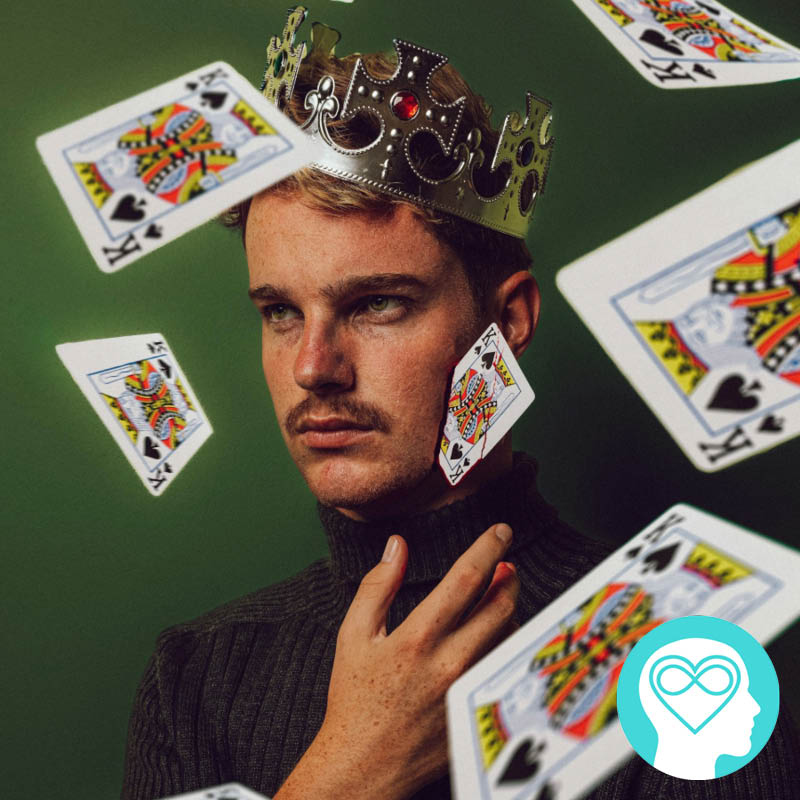Episode Transcript
[00:00:00] Foreign.
[00:00:03] Welcome to the making of you. I'm Alexandria, the founder of the Mastery Project in your Transformation Hub. And now this podcast. The series is dedicated to harnessing your unique potential. Tools, insights, wisdoms for purpose and empowerment and having fun, becoming the architect of your own life.
[00:00:25] And this is episode 15, five ways to transform conflict into creativity. Okay, so let's get into it. Well, number one for me is the whole big subject of conflict.
[00:00:42] Now, a lot of people just go, it's life.
[00:00:46] You know, suck it up, just deal with it. Happens every day on a lesser or greater scale. Well, actually, I've got something to say about that. I. I believe conflict is a choice. And yes. Have we spent millennia as a humanity fighting one another, arguing, polarizing, sort of experiencing power over? Yes, we've done all of the above.
[00:01:14] But does that make conflict any more valuable today than it was 3,000 years ago? No. All right, so my simple number one is to choose to understand conflict by saying, yes, it is a choice. When I choose conflict, I'm going to have a situation where I am beginning to fuel polarity. So getting out of my center, moving into more extreme circumstances, when I choose to say conflict, not so much, not for me, and I actually am embracing the balance point that values and matters to me, then I can allow that conflict, perhaps if it's shouting, anger, frustration, high judgment, whatever it is, to actually float past. All right, now, okay, it might be a bit of a burst of outrage or fire, but when we actually invest in our balance point rather than getting into it, then we're going to be in a much better position to maintain our balance point after what's been said and for all the other points I'm going to make today. So please promise yourself that conflict isn't normal, it isn't natural, and actually, most importantly, it isn't helpful. All right, so discussion is very important. Passion about what we believe in, who we are, what we think is the most beneficial for the highest good of all, for example, all incredibly important.
[00:02:57] But undergoing the discussion through conflict rather than through creativity, through saying, hey, putting it out there, getting all the different opinions, all the different perspectives, lives. It's a much more collaborative and cooperative place. If we can do it believing that no one has to be right, no one has to be wrong, and that it's just a pool of perspectives of which we can all dip our toes in and we can all see how that can benefit the collective good.
[00:03:31] So my number one, conflict isn't naturally part of our life, but we have been conditioned to believe that is the case.
[00:03:40] Okay, number two.
[00:03:44] Well, a lot of people say you're in a big battle at work or you're in a conflict, you know, just get even some way. Well, I'd say get creative now because you've got this incredible thing called free will and you've got your incredible creative HQ being your heart center, then you have all options, all right? Now, the problem with conflict is it is an ingrained pattern, as I said. And so it's actually, sadly, a potentially comfortable place for a lot of people because they're just used to doing it. Doesn't mean it's valuable, doesn't mean it's helpful, but they're used to doing it.
[00:04:26] So when you're actually dealing with turning conflict into creativity, it is important to take a breath and to realise that fighting might be a known quantity, whereas creating an alternative might be a little less of a walked path. So turn inward first and foremost with conflict. Move back into your heart center, get that balance point moving nicely, and then say to yourself, what's the alternative in this situation?
[00:05:01] Now, you can even do that when the conflict is going on, all right? Not because you're running away, not because you're trying to avoid it, but because you're working to find a solution. While perhaps the download or the issue is happening now, it doesn't mean you're not listening to the other person. But when you instruct your heart center to remain open in a conflict, that means you don't shut your energy down and you've got that balance point and that flow of energy available to you. So if you do have the opportunity to make your sentiments known, your opinion, your particular truth of the matter, then you've got the energy to do it, and you haven't actually sunk into polarizing yourself. For example, if you feel you sort of come around a corner and spontaneously someone sort of yelled at you or attacked you, then there is a tendency within us to polarize and feel that we're a victim of our circumstances immediately. So we lose our balance point because of the shock. Now, it's understandable, but that isn't helping us function in our energy field and it's lowering our frequency. So the key is to remain in one's balance point, to stop, to nurture that heartfelt connection and say, whatever this is, if it's going to move through and keep on moving, then it's very important to actually create either an alternative stop and actually listen. All right, but only on the understanding that you're not in resistance. You may not agree Remotely. And what you're doing simply is allowing that energy to move through and move on. Okay, so number two, either create an alternative in your heart or contribute your balance point and don't get into it.
[00:07:03] Okay, so number three. Well, I favour this particular wisdom, which I'm sure a lot of people are already aware of, which is everyone is entitled to their opinion. Now, most people will say that they have an opinion or they have a judgment of what's happening. And that conflict happens because people don't agree. Well, as far as I'm concerned, I think in the spirit of democracy and also the spirit of our world in an evolving, conscious way, that it is up to us to hold the balance point in a different way by saying that we can have compassion and understanding. If someone is under insane stress and then they just come in one off, yell and scream and kind of take it out on their environment, we can get that because we can all say hand on heart, we've been there and probably we've done it ourselves at some point.
[00:08:04] So that person's not necessarily correct remotely in what they're doing. But we can actually say we understand from a respect point of view. We can say, yes, of course, they are entitled to their truth, their observation, their perception and their opinion. Do we share that with them? Probably not. Or if we do, then we might want to be able to say, hey, I'm with you. Please don't go yelling at me because actually you've made a mistake or you've made an assumption that I'm not in the same know camp as yourself. So sometimes with that element of everyone's entitled to opinion, it gives you a breather and it helps you either go for the compassion route, the understanding and the peace, and just allow someone to go through what they're going through, or actually it can give people the breath and the patience to say, I think this is all a misunderstanding.
[00:09:05] And a lot of conflicts that get into polarized conflicts are simply because conflict plus conflict equals more polarity and an escalation often of that conflict.
[00:09:19] So my number three is everyone's entitled to their opinion. And the spiritual tools I would use if someone has a massive outburst or goes on a conflict rampage, in the sense of saying everything that's wrong, then it is, is actually to allow them to empty themselves of it. And to say, I respect the process, yeah, probably wouldn't do it that way myself. But the whole point is you allow it to go and to be finished.
[00:09:56] Okay, so number four.
[00:10:01] Right, well, this is in keeping with number three. I definitely say to people, don't take it personally and everyone will go, but if you really care, you are going to take it personally.
[00:10:13] Let me explain what taking it personally is. It's actually taking it in a space where you can gift it to your limited self and then your limited self can make a huge box out of it, all right? And then chain that box to you. And then when you're trying to move forward in your life, you have that box around your ankle and you're dragging it forward. That is basically you the analogy of taking it personally. So you're building this personal attachment, this box, and sadly, the person who's getting drained or is continually carrying this burden is you, no one else.
[00:10:52] So if you are a sensitive person, if you care, then care about yourself. In instances of conflict, that doesn't make you selfish, it makes you balanced but also carer about your personal truth. All right? But please don't take it personally. All right? Now sometimes there are methods or ways of course, for one's opinion to be known. There are processes, complaint procedures, whatever you want to say. But I think in a lot of situations with conflict, then once it's de escalated, once people have all calmed down, there can be often a no man's land or a sense of balance and calm where what is conciliatory, what is co creative and what is helping everyone actually can be said. Now the problem is if you're busy taking it personally, you're busy dragging that box that you've made for yourself by now, going I really resent what they did and letting your limited self get a hold of all the reasons why everything's unfair and is not what you liked or what was expected. Now I agree it's not about what's fear in this context, it's about you looking after your free will, looking after your energy field and not creating an attachment, a box that you could end up dragging around your life and it just drains you and it hurts you for a long period of time after the event.
[00:12:33] So my number four is don't take it personally. Keep the energy moving and when it all settles down, if there's an opportunity to find a conciliatory and supportive environment, try and contribute to that if the opportunity's there.
[00:12:51] Okay? So number five, what I call the repeat offender. Now, if you've got someone in your environment who angers very quickly, all right, what's important is the learning for you about working with them. Now of course one would say in a self loving way that if you don't want to work with someone who needs perpetual anger management or is always in conflict with everyone else, then you. The ultimate is to create another alternative. And that could be that you move positions within the company or you change your environment or you get a new job.
[00:13:32] So the key with conflict is simply also to understand that it is reflecting something to yourself, about yourself. And so it is actually a learning opportunity, even though, again, it's perhaps one of the learning opportunities we would rather not have. We'd rather do it the easy way or the flowful way or the kind way. All right, so with conflict, if you get, let's say, four different people conflicting on the same matter in one day or one week, look at what that is, look at the incident, look at the reason, and then look inside of yourself saying, whoa, what does that mean about me? All right, so you could have three different people say, why didn't you wash up your coffee cup? All right, so it's your responsibility, leave the place clean. So in that situation, it might be self discipline, it might be that you need to be aware of your environment, might be a bit of self awareness. So that's just an example. The key with this is simply to say if it's a repeat reflection and it's something that's coming into your life regularly, it can be learnt from, but you are very much needing to be honest with yourself.
[00:14:47] Okay. All righty. Well, it's been my pleasure today. Thank you very much for joining me and I look forward to welcoming you to episode 16. Thank you very much.


